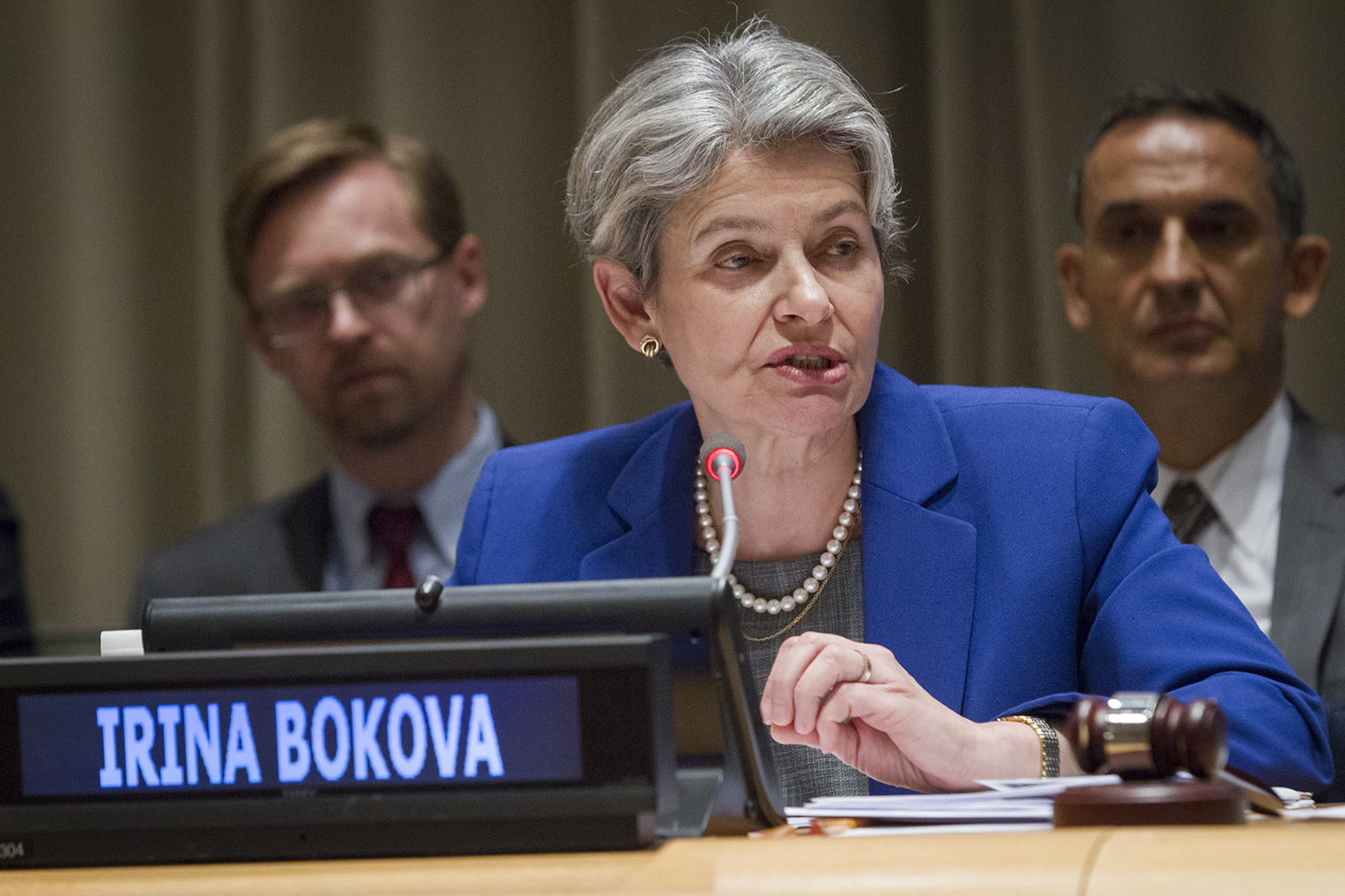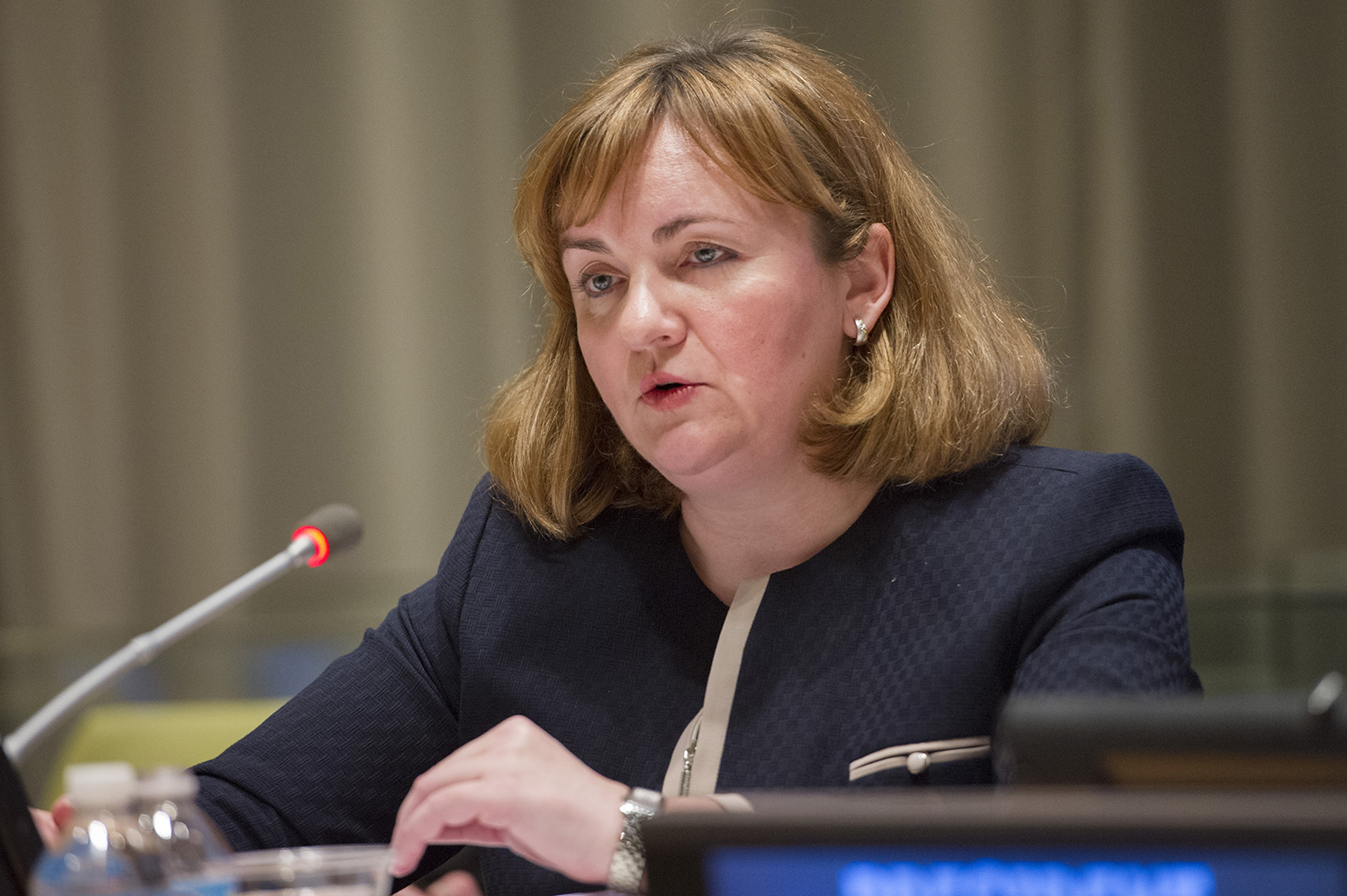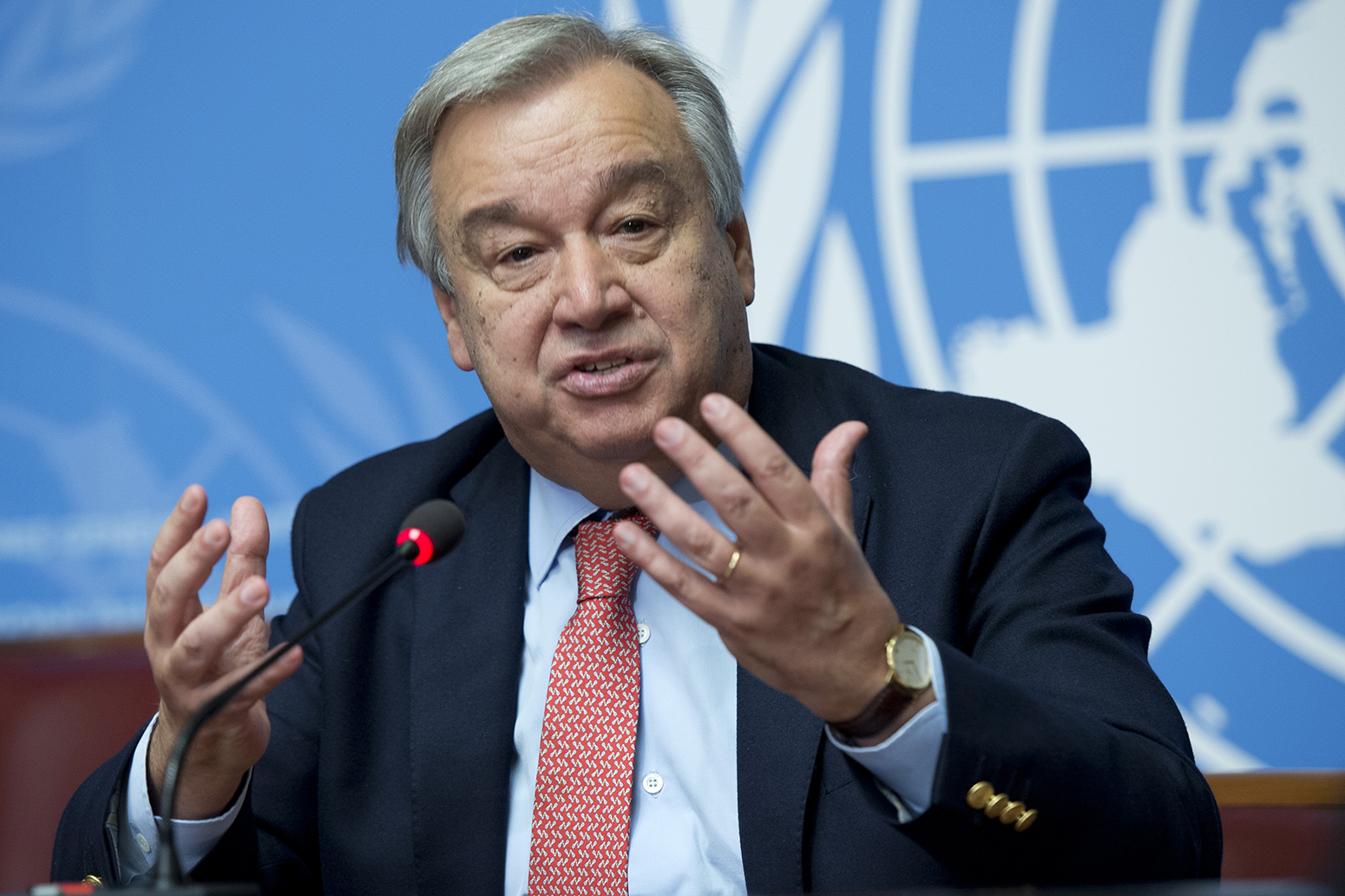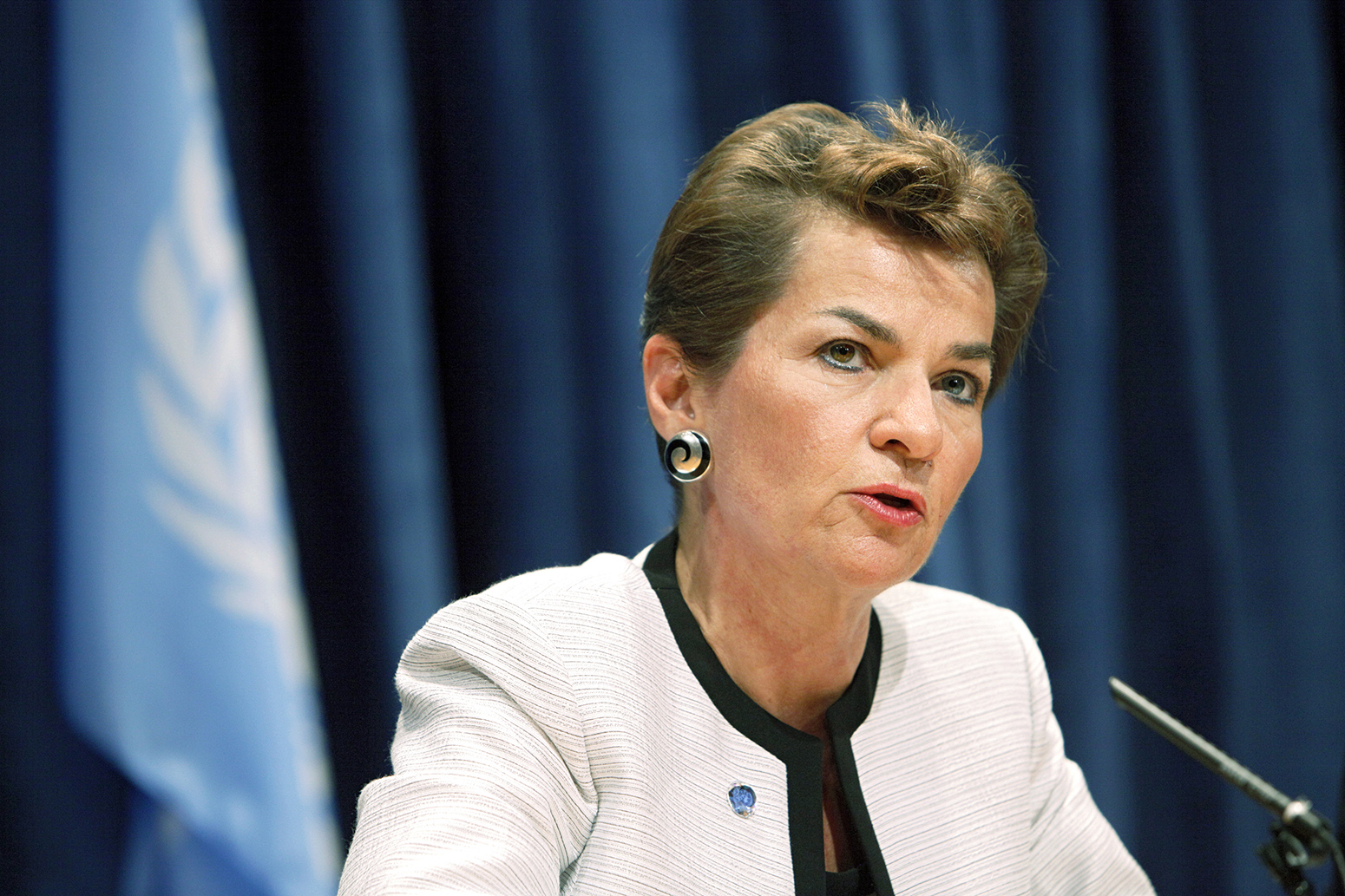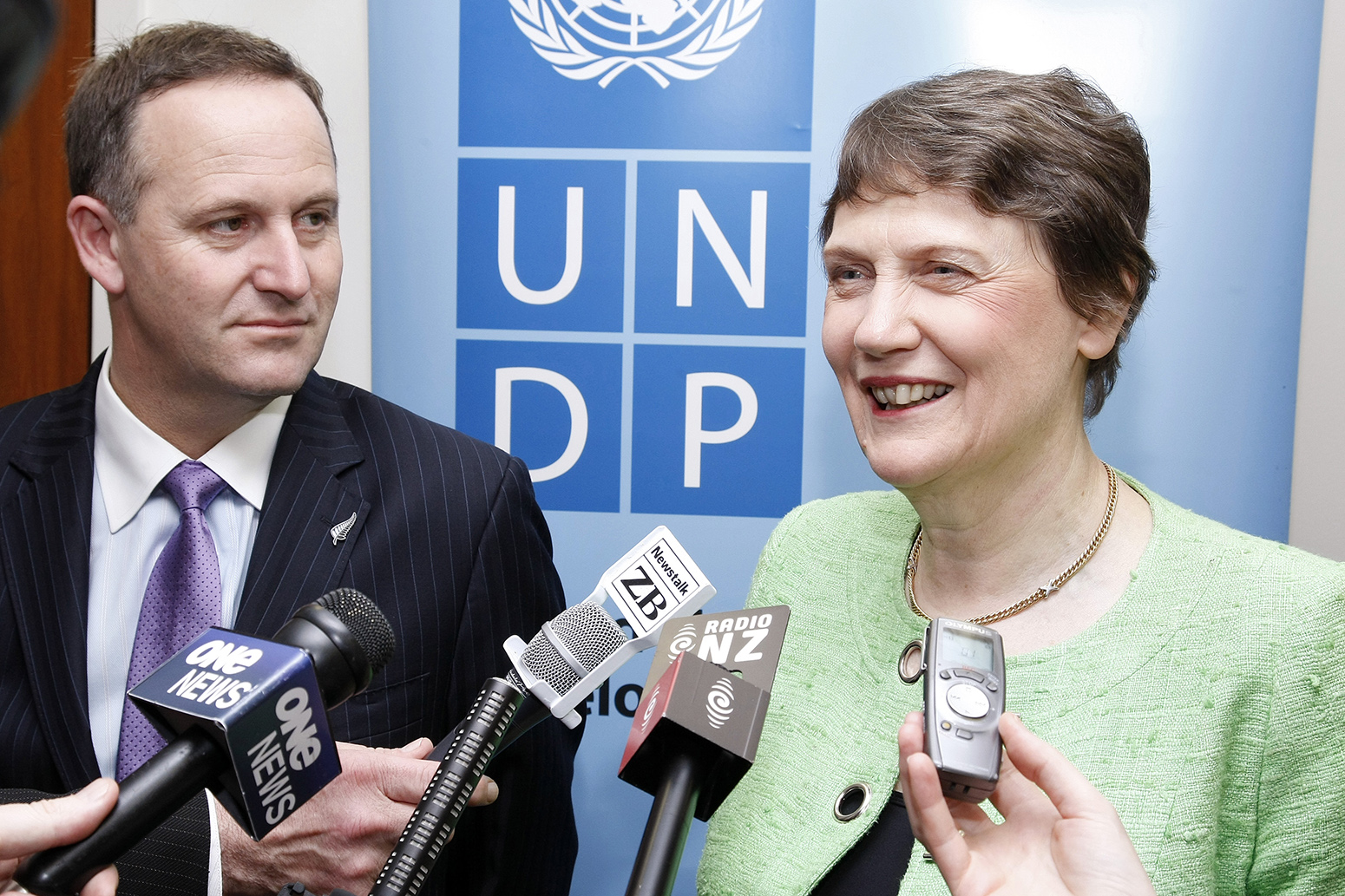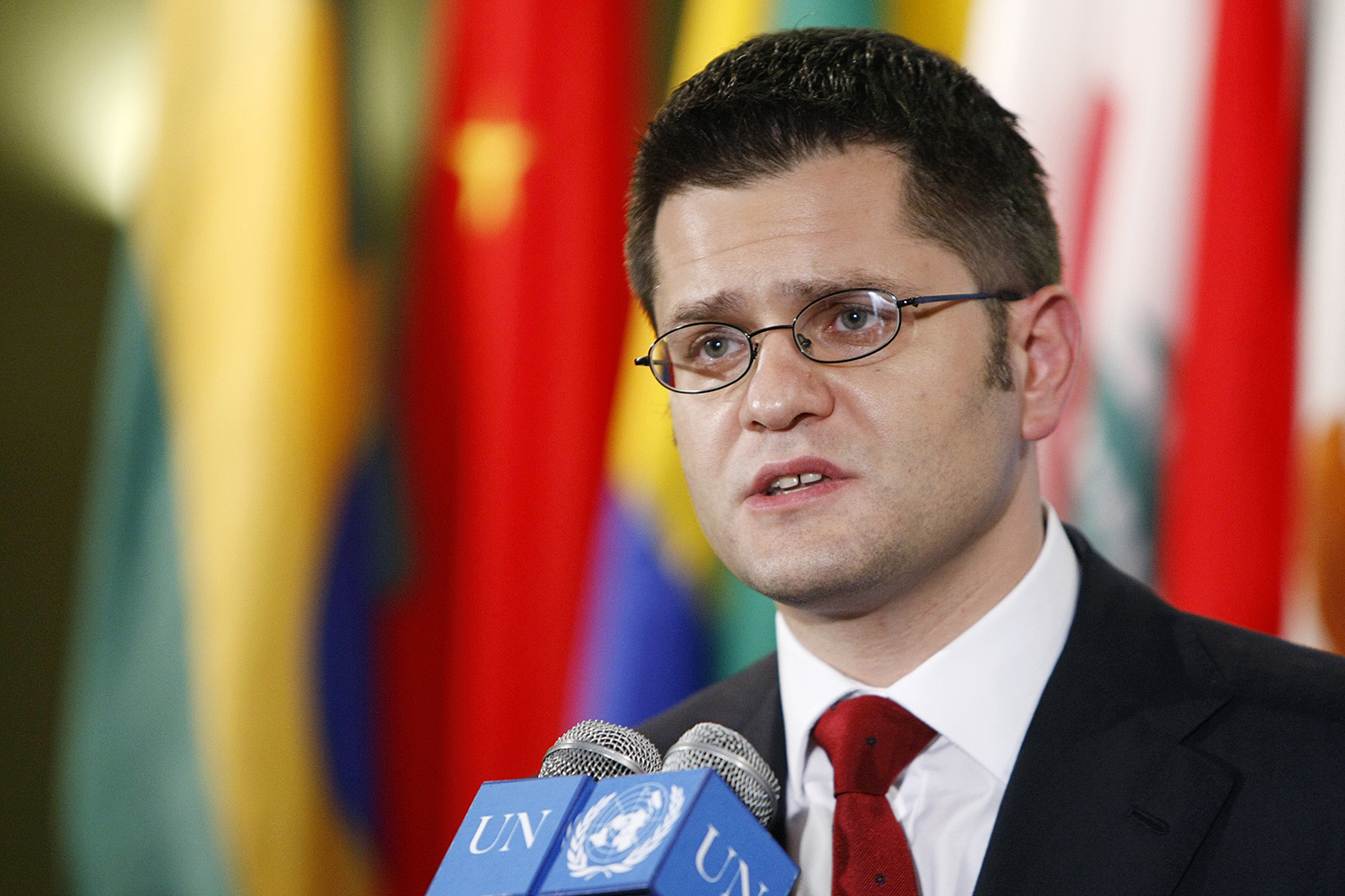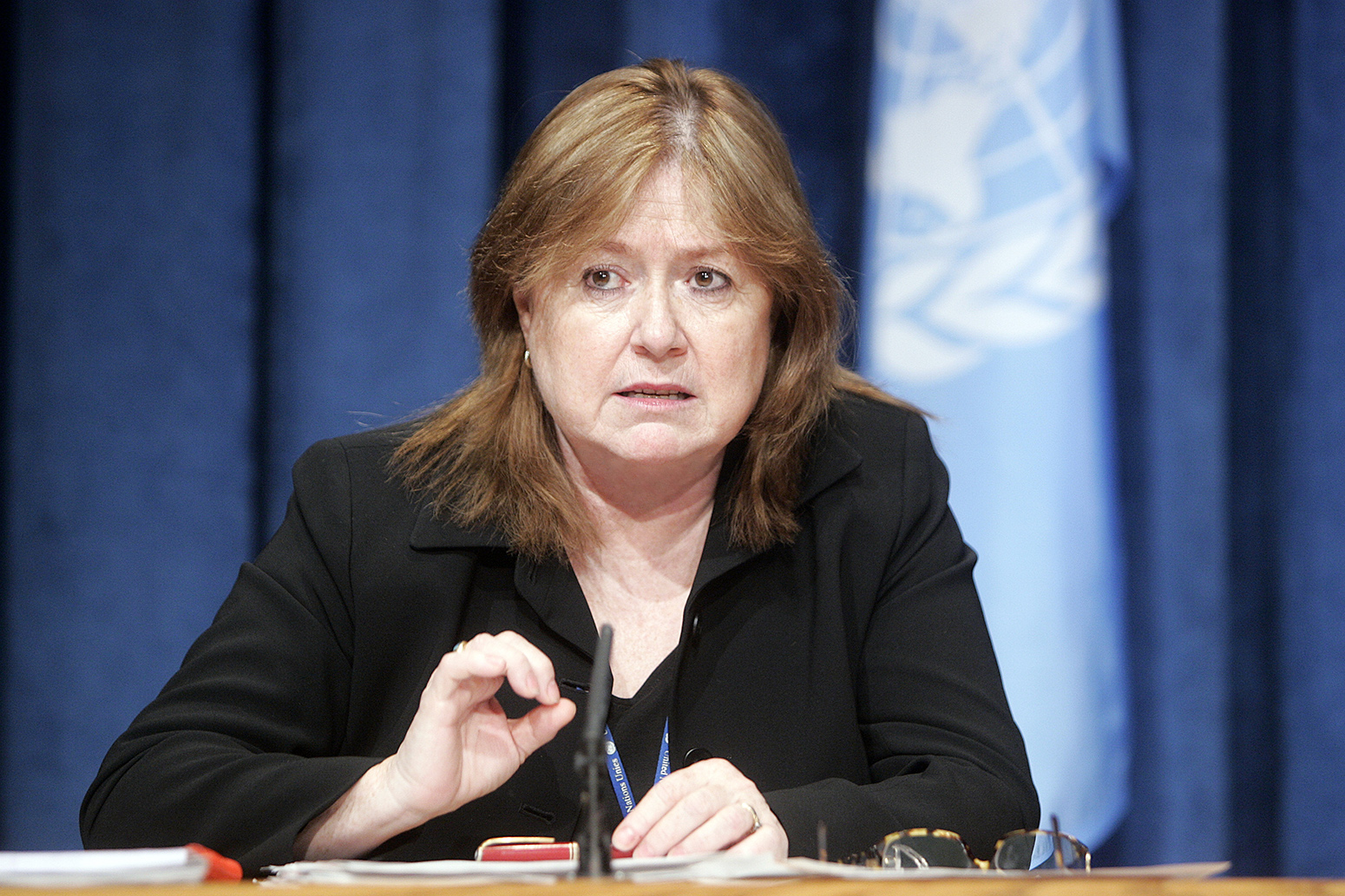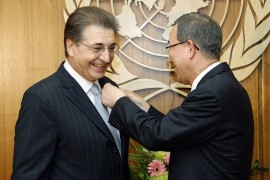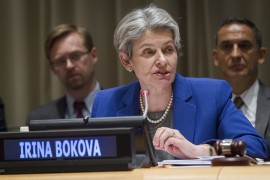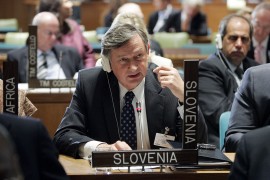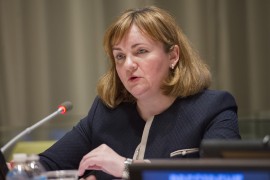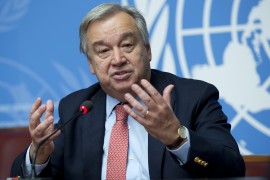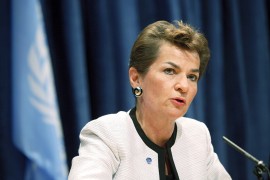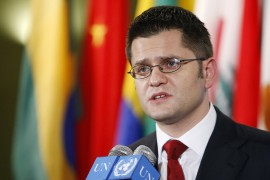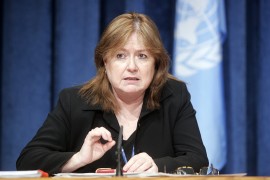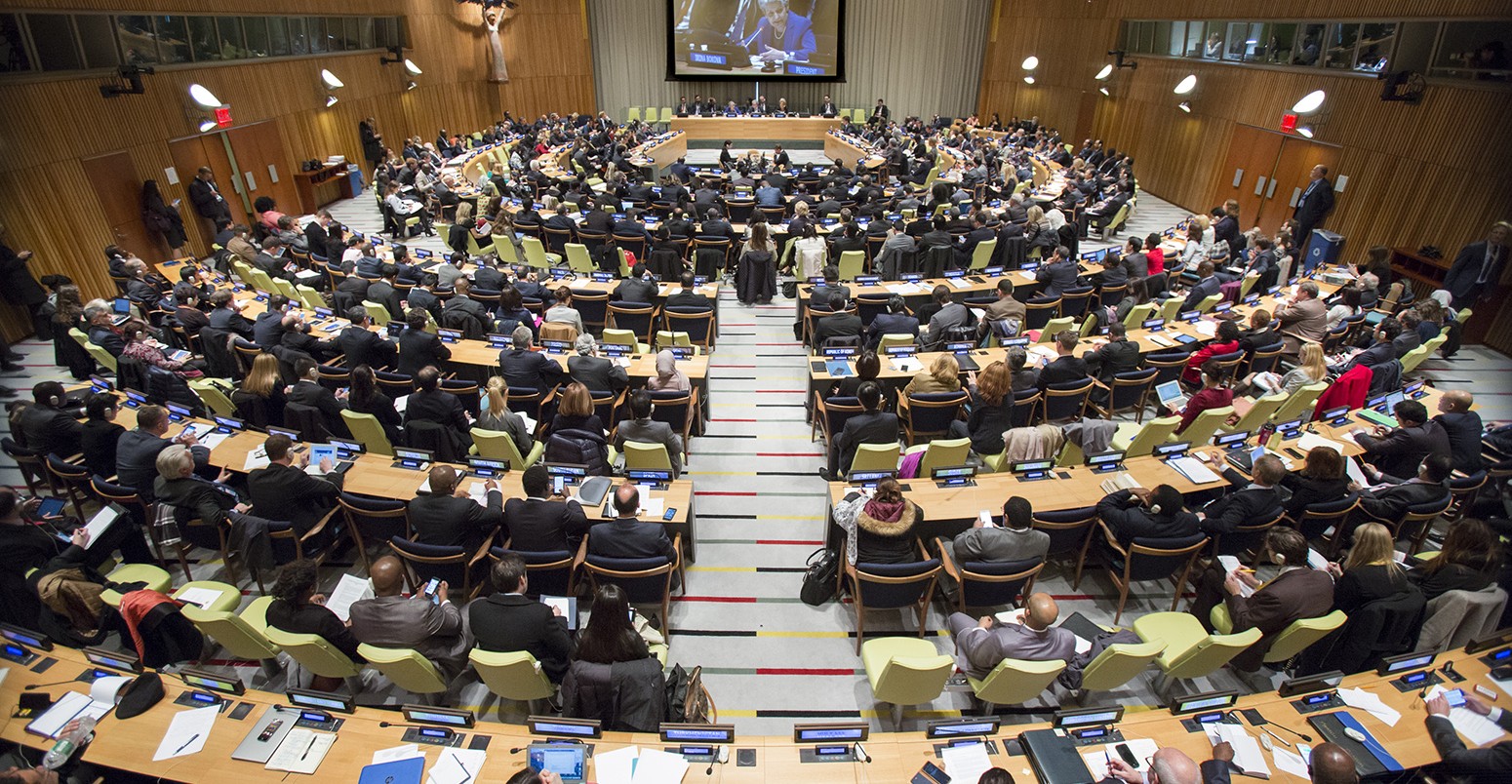
Where do the 10 UN secretary general candidates stand on climate change?
Sophie Yeo
09.01.16Sophie Yeo
01.09.2016 | 8:00amUpdate 6/10/16 – António Guterres will be the next UN secretary general, following a vote by the Security Council in which none of the 15 ambassadors voted against him, and 13 voted for. There were two abstentions. His nomination will go before the UN General Assembly today to be formally confirmed.
Update 28/09/16 – The government of Bulgaria withdraws support for Irina Bokova and instead nominates Kristalina Georgieva. Further details below.
Update 12/09/16 – Christiana Figures has withdrawn her candidacy.
With Ban Ki-moon’s term as United Nations secretary general about to end, the organisation is preparing to appoint a new leader.
Its decision will influence the prioritisation and direction of the UN’s efforts on climate change over the coming years.
So far, 12 people have thrown their hat into the ring. Two have already withdrawn, leaving ten possible candidates.
Between October and December, the Security Council will secretly recommend one of them for the role. To secure this recommendation, the candidate must have positive votes from nine members, and no permanent member can have vetoed the candidate. The UN General Assembly will then vote on this decision.
The candidates — a selection of multilingual, highly experienced diplomats and politicians — have each been recommended by their home governments. All have submitted a vision statement of how they would lead the UN if elected.
Each candidate has also had a chance to answer a question on climate change posed by a member of civil society, although only a few have done so.
Here are some highlights from their statements, with quotes in full at the end. Candidates are presented in the order they submitted their candidacies.
Srgjan Kerim
The existence of climate refugees is not just a concept, but a sad fact.
Srgjan Kerim is Macedonia’s candidate for UN secretary general. He is a seasoned diplomat within both his home government and internationally, having served as both Macedonia’s foreign minister and president of the UN General Assembly. He also has experience of working on climate change — between 2008 and 2009, he was the UN secretary general’s special envoy for this topic.
Kerim’s vision statement is one of the most comprehensive on the subject of climate change.
He highlights climate change as a security threat, and spends time considering the details and implications of the UN Paris Agreement adopted in 2015. In particular, he focuses on the deadlines for countries to take stock of their commitments on climate change that are set within the deal.
He is the only candidate to hone in on the controversial topic of biofuels, saying that he will work with everyone to increase “sensible” investment in new technologies — “so that, for example, increasing production of biofuel crops doesn’t lead to increased food insecurity”.
He dedicates a paragraph to the most vulnerable nations: least developed countries, landlocked developing countries and small island developing states. These, he says, should be high on the agenda.
Finally, he addresses the issue of climate change refugees — people who are displaced because of floods, droughts and re-emerging diseases, he says. Their existence is not a concept “but a sad fact”, he writes.
Danilo Türk
The UN will have to address practical problems such as the problem of carbon subsidisation.
Danilo Türk is Slovenia’s candidate for UN secretary general. He has also served as assistant secretary-general, and was president of Slovenia for five years between 2007 and 2012.
He was one of the few candidates to respond to civil society’s question on climate change. In this, he stressed that the first task is to secure the “broadest possible ratification” of the Paris Agreement. He also said that the UN would have to address practical problems such as “carbon subsidisation” — significant as the issue of fossil fuel subsidies has so far been sidestepped by the UN. He has promised to make specific recommendations on climate change “in due course”.
His vision statement is less specific. He says that the secretary-general should play a “catalytic role” in the implementation of the Paris Agreement and other recent UN deals relating to global development.
Irina Bokova
Climate change, environmental degradation and resource depletion are new drivers of migration and poverty in societies across the world.
Irina Bokova is Bulgaria’s choice for UN secretary general. She is best known as the director general of UNESCO, the UN’s body for education, science and culture, but she has also played a role in her domestic government, including as interim foreign minister.
In her vision statement, she highlights climate change has one of the drivers of poverty and migration across the world. She focuses on the UN’s recent Sustainable Development Goals as well as the Paris Agreement. Achieving the targets set out in these deals means that the UN must become more efficient and effective, she says, and that “working in silos cannot go on”.
She adds that there needs to be a special focus on the most vulnerable, but that middle income countries will also need support to address deepening inequalities.
Natalia Gherman
After the adoption of the 2030 Agenda, the Paris Climate Agreement and the Addis Ababa Action Agenda, now is the time to turn to implementation, with all means at our disposal and with the clear objective of leaving no one behind.
Moldova has put forward Natalia Gherman as its candidate for secretary general. She has been both foreign minister and deputy prime minister within her country’s government, and has also been an ambassador abroad.
In her vision statement, she says that it is now time to implement the Paris Agreement, along with the UN’s other development packages.
She also highlights climate change as one of the factors that could lead to conflicts and migration. She says that action is needed at all levels, and that the secretary general should reach out to all stakeholders to this end. Doing so requires “important investments, strong cooperation and a shift of mindset”, she says.
António Guterres
With the horizon of 2030 the focus is on action and the watchword is implementation, implementation, implementation.
António Guterres, Portugal’s candidate for secretary general, is currently the frontrunner in the race. He served as the UN High Commissioner for Refugees from 2005 to 2015, and as prime minister of Portugal from 1995 to 2002.
Realising the Paris Agreement and the UN’s other development packages is a matter of survival for many, he writes in his vision statement, and stresses that implementation is vital.
Helen Clark
As Secretary-General I would see it as my responsibility to do my utmost to ensure that countries meet their commitments to reducing emissions so that the world can come as close as possible to controlling global warming within the agreed temperature range.
Helen Clark is New Zealand’s candidate for secretary general. From 1998 to 2008 she was the country’s prime minister, and since 2009 has led the UN Development Programme.
This latter role has given her direct experience in dealing with climate change, she said in her answer to the civil society question. It means that she was involved in the discussions leading up to the Paris Agreement, and is concerned about how climate change has made it harder to develop in many regions. She also says that, as secretary general, she would strive to ensure countries meet their emission reduction commitments.
She also touches upon climate change in her vision statement. “The poor, vulnerable, and marginalised suffer most,” she says. She adds that, that even with the Paris Agreement, the planet faces an increase in extreme weather and other climate-related problems for decades to come, and therefore adaptation in vulnerable countries is “urgently required”.
Vuk Jeremić
The Secretary General will work relentlessly with Heads of State and Government to assist them in achieving their Nationally Determined Contributions to fight climate change.
Vuk Jeremić is Serbia’s candidate for UN secretary general. He is currently the president of a think tank in Belgrade, and has previously served as president of the UN General Assembly, during which he launched the negotiations leading to the Sustainable Development Goals. He has also served as Serbia’s foreign minister.
Jeremić has set out seven commitments on climate change in a detailed policy platform, which he says he would start implementing from day one of taking office. These include urging member states to implement the Paris Agreement, raising awareness of climate change, advocating for sustained climate funding, urging the development of green technologies and engaging global business.
In the vision statement itself, Jeremić promises to “work relentlessly” with heads of state to achieve their UN climate pledges.
Susana Malcorra
Climate change, large movements of people, health pandemics, violent extremism, armed conflict and other global trends represent pressure points that can threaten the prospects for maintaining international peace and security, promoting sustainable development and upholding human rights.
Susana Malcorra is Argentina’s candidate for UN secretary general. She is currently the country’s foreign minister, and has held UN positions in the past.
In her vision statement, she stresses that climate change is among the numerous threats to international peace, security and human rights. She highlights the need to safeguard financing for development.
Miroslav Lajčák
Achieving the SDGs and realising the commitments of the Paris Climate Agreement will require huge systemic changes.
Miroslav Lajčák is Slovakia’s candidate for UN secretary general. He is a diplomat who has spent his time in the Slovakian foreign office, including the position of minister.
In his answer to the civil society question about climate change, he has spoken about the importance of supporting the early entry into force of the Paris Agreement, and also says he would promote the need for businesses and investors to put climate risks at the centre of their corporate strategy.
In his vision statement, he says that systemic change will be needed to implement the goals of the Paris Agreement, and that enormous economic growth will be required in the most vulnerable countries — a process that will rely on enhanced North-South and South-South cooperation.
Christiana Figures – Withdrawn 12/09/16
If we fail to stabilise the climate or prevent irreversible environmental damage in a timely manner we cannot just fix it later.
Christiana Figueres is Costa Rica’s candidate for UN secretary general. She needs little introduction in the world of climate change, having held the position of executive secretary of the UN’s climate body (UNFCCC), where she spearheaded the efforts to negotiate the Paris Agreement, succeeding where all previous efforts had failed.
In her vision statement, she says that her experiences in negotiating the Paris Agreement would provide a model for her leadership more generally. “The Paris Agreement has taught us the fundamental importance of respecting national circumstances, needs and interests. But it has also taught us that we can honor national priorities while finding ways of joining efforts for the common good, and focusing on our common humanity,” she writes.
She also emphasises the urgency of acting on the Paris Agreement, writing that there are “no second chances”. Implementing this, and the UN’s other development packages including the Sustainable Development Goals, will help to ensure future food, water and energy security and avoid forced migration, she says.
Figueres also stresses the role of women and gender equality in reaching climate and development goals. “When we invest in a woman or a girl, we see the ripple effect of her potential,” she writes.
Kristalina Georgieva
The government of Bulgaria has nominated Kristalina Georgieva as a last minute entry into the race for the post of UN secretary general. Georgieva is currently European Commissioner for Budget and Human Resources. Bulgaria has withdrawn its support for its former candidate Irina Bokova.
Georgieva has said that she will soon present her vision to the UN member states — details of this will be added when she does so.
In the past, she has written a thesis on “Environmental Protection Policy and Economic Growth in the USA” while doing her PhD in Economics. In a speech earlier this year, she said: “Most challenges are now global in nature, as we are seeing it with the financial and refugees crises, and with the impact of climate change.”



